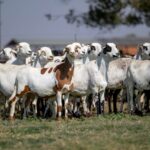Farming is a rewarding yet challenging venture that requires careful planning, hard work, and a solid understanding of the land, crops, and animals. For beginner farmers, the learning curve can be steep, and while mistakes are a natural part of the journey, some can be costly or set your farm back significantly. Here are 20 mistakes every beginner farmer should avoid to ensure a smoother, more successful path in agriculture.
1. Neglecting Proper Research
Jumping into farming without thorough research is a common mistake. Understand the type of farming you want to engage in—whether it’s crop cultivation, livestock rearing, or a combination—and familiarize yourself with best practices, challenges, and local regulations.
2. Underestimating Startup Costs
Farming can be expensive, with costs for land, equipment, seeds, animals, and labor. Many new farmers underestimate the initial investment needed and struggle with cash flow early on. Create a detailed budget to avoid surprises.
3. Overexpanding Too Quickly
Scaling up before mastering the basics can lead to financial strain and operational difficulties. Start small, focus on quality over quantity, and expand only when you’re confident in your skills and infrastructure.
4. Ignoring Soil Health
Healthy soil is the foundation of a productive farm. Many beginner farmers overlook soil testing and the importance of amending the soil with the right nutrients. Regular soil tests help you understand your soil’s needs and improve crop yields.
5. Poor Water Management
Overwatering, underwatering, or not having an efficient irrigation system can ruin your crops. Learn about your crops’ specific water needs and install a proper irrigation system that conserves water while ensuring plants get enough moisture.
6. Not Planning for Pests and Diseases
Pests and diseases can quickly devastate crops or livestock. New farmers often fail to implement a proactive pest and disease management plan, leading to preventable losses. Regular monitoring and preventive measures like crop rotation and natural pest control methods can help.
7. Failure to Rotate Crops
Planting the same crop in the same spot every year can deplete the soil and increase pest problems. Crop rotation improves soil health and reduces the risk of pests and diseases.
8. Overlooking Market Research
Growing crops or raising animals without knowing if there’s a demand for them is a mistake. Market research is essential to understand what products are in demand locally or regionally and how to price them competitively.
9. Neglecting Animal Welfare
For livestock farmers, not providing adequate shelter, food, and care for animals can result in poor health and reduced productivity. Learning the specific needs of each animal species is crucial for their well-being and farm profitability.
10. Lack of Record Keeping
Keeping accurate records of expenses, crop yields, and livestock health is vital for tracking progress and making informed decisions. Poor record keeping can lead to financial mismanagement and inefficiencies.
11. Inadequate Time Management
Farming is time-intensive, and beginners often underestimate the amount of time required to tend to crops and animals. Develop a realistic daily and seasonal schedule to ensure that all farm tasks are completed on time.
12. Not Diversifying Income Streams
Relying on one type of crop or livestock can be risky. Consider diversifying your farm with multiple income streams, such as adding a vegetable garden, poultry, or agri-tourism, to increase your chances of success.
13. Buying Too Much Equipment
New farmers often spend large sums of money on machinery they don’t need. It’s tempting to buy the latest tractor or tool, but starting with minimal equipment and renting or buying secondhand is often a smarter financial decision.
14. Mismanaging Fertilizer Use
Applying too much or too little fertilizer can damage crops and harm the environment. Learn about the specific nutrient needs of your crops and apply fertilizers according to best practices, avoiding overuse or runoff.
15. Not Seeking Advice from Experts
Many beginners are hesitant to ask for help, which can lead to avoidable mistakes. Reach out to local agricultural experts, extension services, or experienced farmers for guidance. Networking can provide valuable insights and support.
16. Ignoring Weather Patterns
Weather can make or break a farming season. Not paying attention to local weather patterns and planning accordingly can lead to ruined crops or missed planting windows. Learn about the climate in your area and how it affects your crops or livestock.
17. Overworking the Land
Constantly tilling or planting without giving the land time to rest can degrade soil health. Implement sustainable practices such as cover cropping and conservation tillage to maintain the land’s fertility over time.
18. Inconsistent Farm Maintenance
Neglecting regular maintenance of equipment, fences, and buildings can lead to costly breakdowns. Set aside time for routine inspections and upkeep to prevent bigger problems down the road.
19. Underpricing Your Products
Many beginner farmers sell their products at prices that don’t cover their costs or account for the labor involved. Understand your production costs, factor in your time, and price your products to ensure a profit.
20. Burning Out
Farming can be physically and mentally demanding, and beginners often push themselves too hard, leading to burnout. Schedule regular breaks, delegate tasks when possible, and remember that farming is a long-term commitment that requires balance and patience.
Farming is a journey of continuous learning, and while mistakes are inevitable, being aware of common pitfalls can help you avoid costly setbacks. By planning carefully, seeking advice, and staying adaptable, beginner farmers can build a sustainable and thriving agricultural venture.
Join 'Farmers Mag' WhatsApp Channel
Get the latest Farming news and tips delivered straight to your WhatsApp
CLICK HERE TO JOIN






